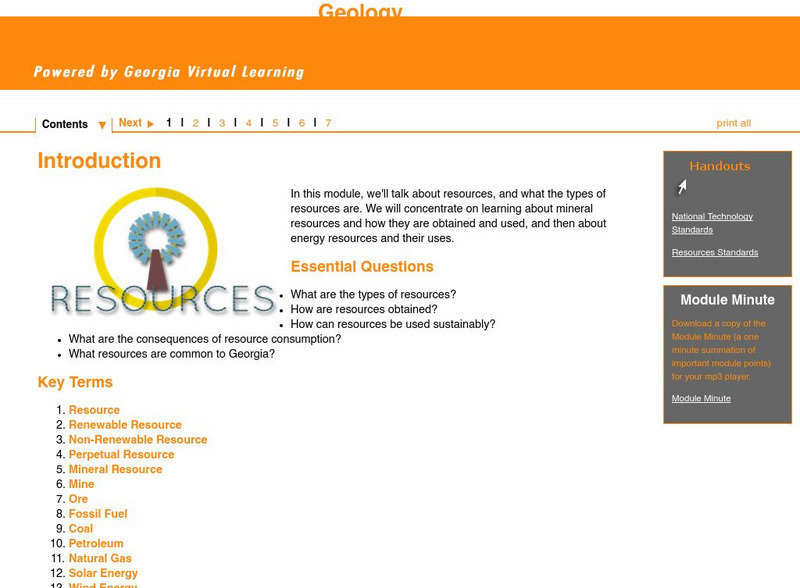Government of South Australia
Don't Waste Your Energy
Don't lift another finger, this physical and environmental science unit has everything you need to begin teaching your class about energy. Starting with a look at the greenhouse effect, these lessons and activities take young scientists...
National Geographic
Energy Sustainability in the Klamath Basin
High schoolers research the hydroelectric plant removal project that is underway on the Klamath River. They consider the replacement of hydroelectric dams with geothermal power plants and form an argument based on their viewpoints. Since...
Teach Engineering
Fluid Power Basics
What can bulldozers and screen doors have in common? Use this lesson on fluid power to find out. It begins with some simple teacher demonstrations, includes a couple of videos, and culminates with an inquiry-based activity to investigate...
Society of Petroleum Engineers
Renewable and Nonrenewable Energy
Energize an environmental science unit on natural resources with this collection of instructional materials. From simple coloring sheets for primary grade children, to guiding questions for a high school research...
Texas State Energy Conservation Office
Investigation: Water Wheel
Middle school scientists construct a working water wheel from an aluminum pie pan. Because of the sharp edges on the cut aluminum, this activity is for mature learners only. You could have your class compete to see whose wheel can lift...
Foundation for Water & Energy Education
How Can Work Be Done with Water Power? Activity B
For this second of three activities, energy engineers plan and create a hydropower dam as they learn how hydroelectric power plants generate electricity. A hydropower puzzle is also included, which can be worked on by teams that finish...
Curated OER
US Energy Geography
The maps display the statistics for energy consumption and power production, state by state. They are tremendous visual aids for your natural resources unit. Consider having your class compare energy consumption versus production, or...
Wind Wise Education
Understanding Electric Power Generation
You mean the electricity does not come from the switch? As a class and in small groups, learners explore the sources of energy used to generate electric power. Worksheets guide groups into choosing a future electricity generating...
Curated OER
Wind Power and Your Community
Pupils acquire knowledge about hydropower, diesel power, wind power, and how they are currently used in the north. They share what they have learned through a jigsaw activity.
Curated OER
Pros and Cons of Hydroelectric Power
Middle schoolers develop arguments for and against the construction of hydroelectric power plants. Poll the groups to determine which view dominates in the class and students write a summary of their conclusions.
Curated OER
Power In Variety
Students discover different types of energy. In this energy source lesson students compare different types of energy, renewable and nonrenewable. Students answer questions about the different types of energy and their impact on the...
Georgia Department of Education
Ga Virtual Learning: Geology Resources
In this interactive tutorial you will learn about geological resources. Learn what the types of resources are and concentrate on learning about mineral resources and how they are obtained and used, and then about energy resources and...
US Department of Energy
U.s. Department of Energy: Water Power Program: Types of Hydropower Plants
Learn about the three types of hydroelectric power plants used to capture the energy from water at a hydropower dam site.














